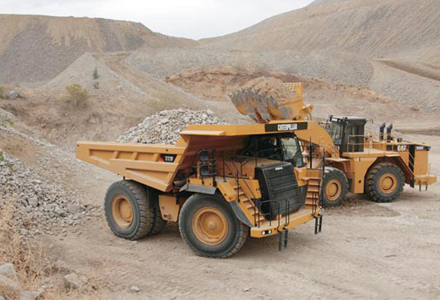
Access to mineral resources is a problem in Europe but the European Aggregates Association (UEPG) is working to improve the situation through the European Commission's Raw Materials Initiative
Aggregate extraction provides the construction industry with vital building materials with consumption in the
While the European non-energy extractive industry has made significant progress in its environmental, as well as health and safety performance, it has been facing increasing challenges in obtaining access to raw materials. This has impacted not only on the mineral supply needed by the European economy but also the industry's competitiveness, which is a pre-condition to deliver sustainable development.
In order to address this challenge, the
According to the Commission, the initiative is aimed at improving access to raw materials for non-energy uses. A background paper from the Commission said that the initiative will include a wide range of non-energy raw materials, such as aggregates, clays and metallic ores.
As the security of raw materials supply is of significant importance to the European aggregates industry, the
The specific examples from Germany, Finland, France, Netherlands, Slovakia, Ireland, Romania and Great Britain suggest that extraction is being restricted due to Natura 2000, planning issues and increasing difficulty in obtaining extraction or renewal permits. These case studies were presented to the Commission vice president Günter Verheugen, who is responsible for enterprise and industry policy, by the UEPG and the
The UEPG is also planning to brief Members of the
The Forum will bring together Members of the European Parliament representing different political groups, the European Commission as well as senior industry representatives. It will provide a valuable opportunity for UEPG and other NEEIP members to present industry views on each pillar of the Raw Materials Initiative and brief MEPs on the industry issues arising from the Commission's consultation.
Speaking on the issue of raw materials at a press conference last year, Verheugen said, "European industries need predictability in the flow of raw materials and stable prices in order to remain competitive. We are committed to improve the conditions of access to raw materials, be it within Europe of by creating a level playing field in accessing such materials from abroad."














